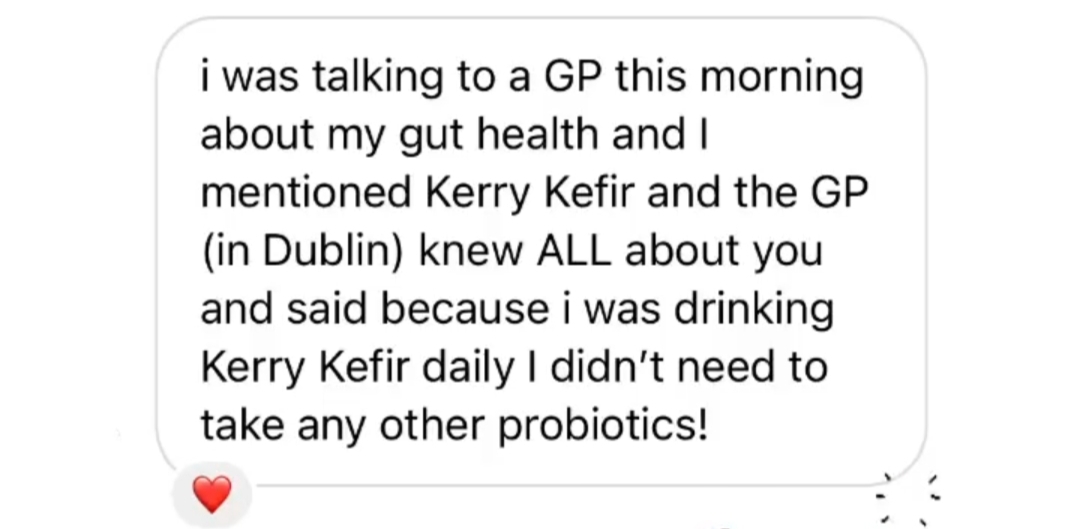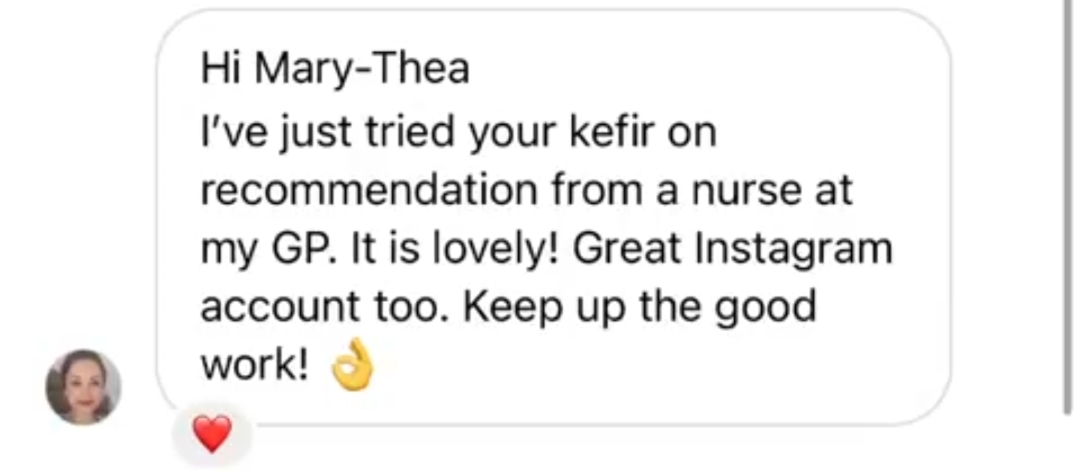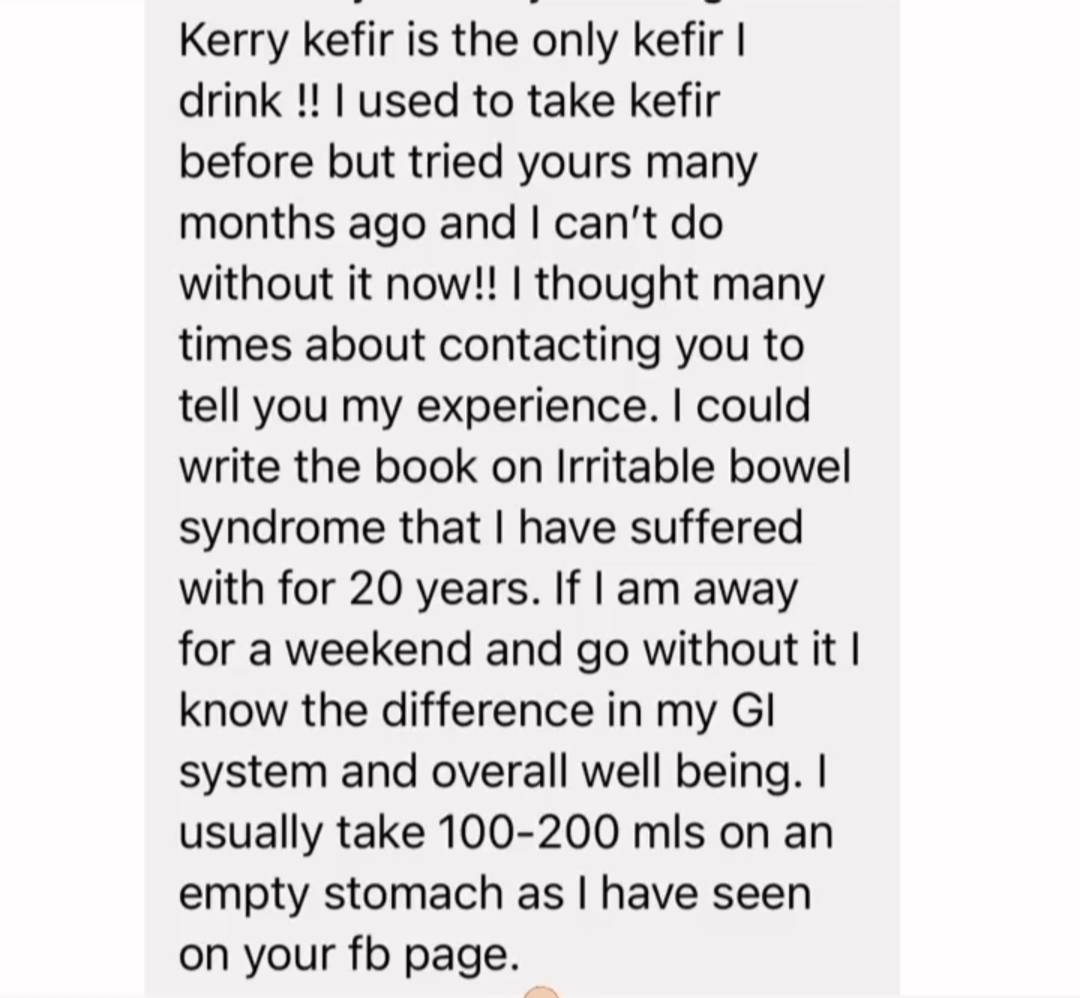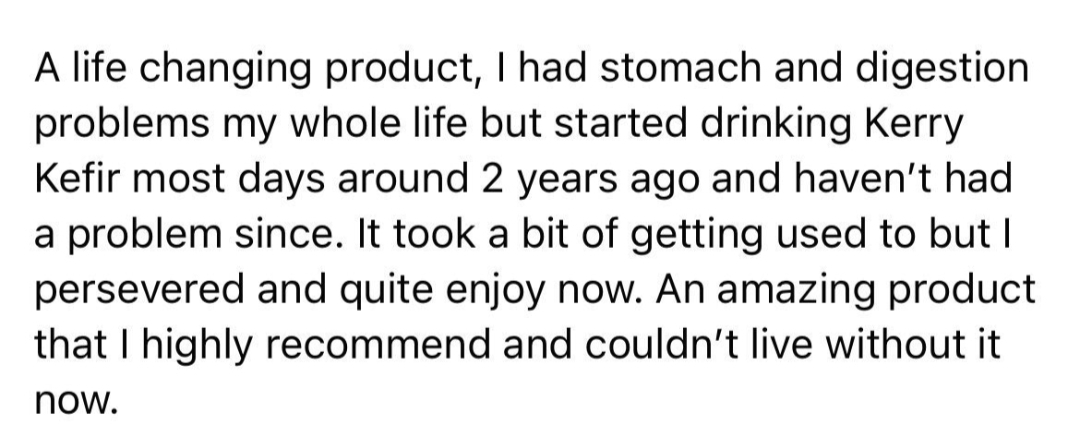I had the privilege of being invited to speak on a panel at Electric Picnic this year on the theme of Food as Medicine. It’s a conversation that’s incredibly close to my heart, not only because of my work with Kerry Kefir, but also because it has helped me gain complete control over my IBS. For years I struggled with the discomfort and unpredictability of IBS, and discovering how food could support my gut health was truly life-changing.
That’s why this topic feels more urgent than ever, as we all grapple with the effects of ultra-processed foods on our diets and long-term health. Sitting alongside other passionate voices at the festival, I was reminded of just how powerful food can be, not only to nurture and fuel us, but to genuinely transform our wellbeing.
Now, before I dive in, it’s important to say this: under current Food Safety Authority of Ireland (FSAI) guidelines, we’re not allowed to make health claims about our product or call Kerry Kefir a “probiotic”. But what we can do is share what the research is telling us – and, perhaps more importantly, what our customers are telling us. Time and time again, people say that Kerry Kefir has supported them with bloating, digestion, and food intolerances/sensitivities. For many, it’s become a small but powerful part of their daily routine.
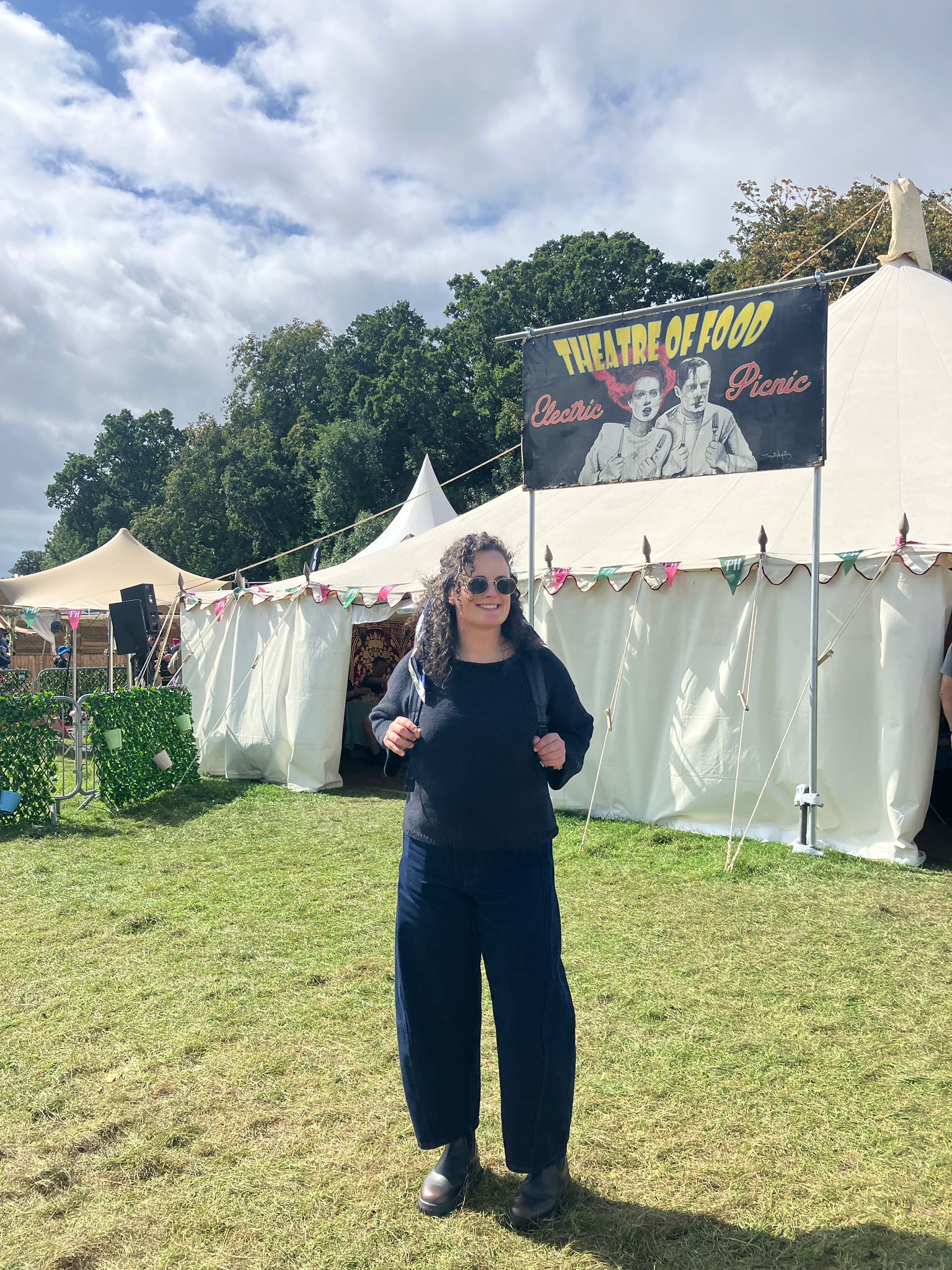
What Our Customers Say
Over the years, many of you have reached out with your own experiences of how Kerry Kefir fits into your daily life. Some common themes we’ve heard include:
- Feeling less bloated after meals
- Better digestion and more regular, comfortable bowel movements
- Improvement with food intolerance/sensitivities
- A general sense of having “more energy”
We can’t make promises, but these stories remind us that traditional, living foods can sometimes have a powerful impact when they’re part of a balanced lifestyle.
The Science Behind Food as Medicine
While regulations mean I need to be careful with my words, I can point you to some fascinating research. A 2023 study published in The Lancet highlighted how the gut microbiome influences everything from digestion to immune function and mental health. Scientists are finding that diversity in what we eat – fibre-rich fruits, vegetables, legumes, nuts and fermented foods – may play a role in supporting a diverse gut microbiome, which in turn may impact overall wellbeing.
On the flip side, research consistently shows that diets high in ultra-processed foods are linked with increased risk of chronic disease. These foods are often stripped of fibre and nutrients and can disrupt the balance of our gut microbes. A study from 2024 in BMJ found that higher consumption of ultra-processed foods was associated with a greater risk of multiple health issues, including cardiovascular disease.
The message from science is clear: when possible, choose whole, minimally processed, and diverse foods.
Why Traditional Fermentation Matters
One of the reasons I started Kerry Kefir is because I believe in the value of real, traditionally made foods. Our kefir is crafted with just two ingredients, fresh milk from Lee Strand’s Kerry farms and living kefir grains. Nothing powdered, nothing artificial. It’s a simple process, but one that has been used in households for centuries across the world.
Unlike supplements or fortified foods, fermented foods evolve naturally. The microbial community adapts with the seasons, creating variety that nature itself provides. That adaptability is something a capsule or ultra-processed drink can’t replicate.
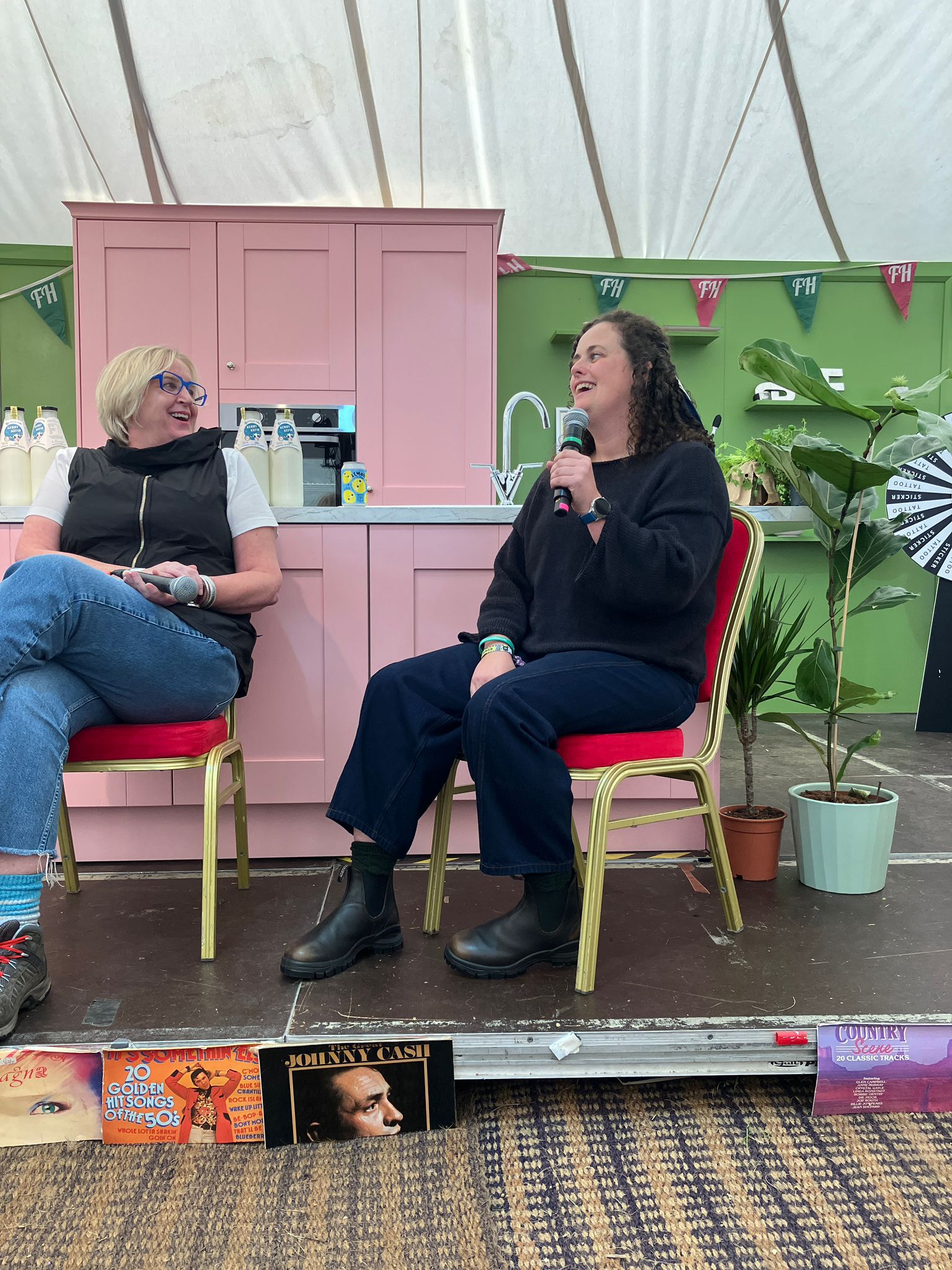
Stories from the Festival
What made the Electric Picnic panel extra special were the stories shared, both from speakers and visitors:
Jacinta Dalton, Head of Culinary Arts in Galway, spoke powerfully about her own experience. After a cancer diagnosis, she transformed her diet while undergoing chemotherapy, which attacks all cells. And found that adding Kerry Kefir to her diet helped her gut and digestion remain strong.
Heather McGuire from @yourfooryourtable highlighted how culinary medicine is already being woven into hospitals and schools in the US, helping prevent chronic disease and support those already diagnosed.
We also hosted a demo and tasting in the tent, which sparked some brilliant conversations. People shared their own experiences of kefir, and my favourite story of the weekend came from a man who said our kefir instantly transported him back to his grandmother’s kitchen. She strained kefir every day and made him drink a shot each morning as a child. Her motto was, “a shot of kefir every morning and a shot of whiskey every night”, and she lived well into her 90s. How sweet is that? 🥰
The Q&A that followed was just as fascinating. One visitor mentioned that he drinks kombucha regularly, but kefir seemed to trigger acne flare-ups for him. This could be linked to histamine intolerance, particularly when combined with a high-histamine diet, or it may have been down to proteins not being fully broken down in certain mass-produced kefir brands.
We were also asked about lactose intolerance and whether kefir is suitable for those who struggle with dairy. The good news is that the fermentation process in traditionally-made kefir naturally breaks down much of the lactose, and contains lactose-digesting bacteria that when added to your gut can help to further digest lactose in your gut, which is why many people who usually avoid dairy find they can tolerate our kefir more easily. That said, it’s not suitable for everyone with lactose intolerance, so we always advise proceeding with caution and starting with small amounts to see how your body responds.
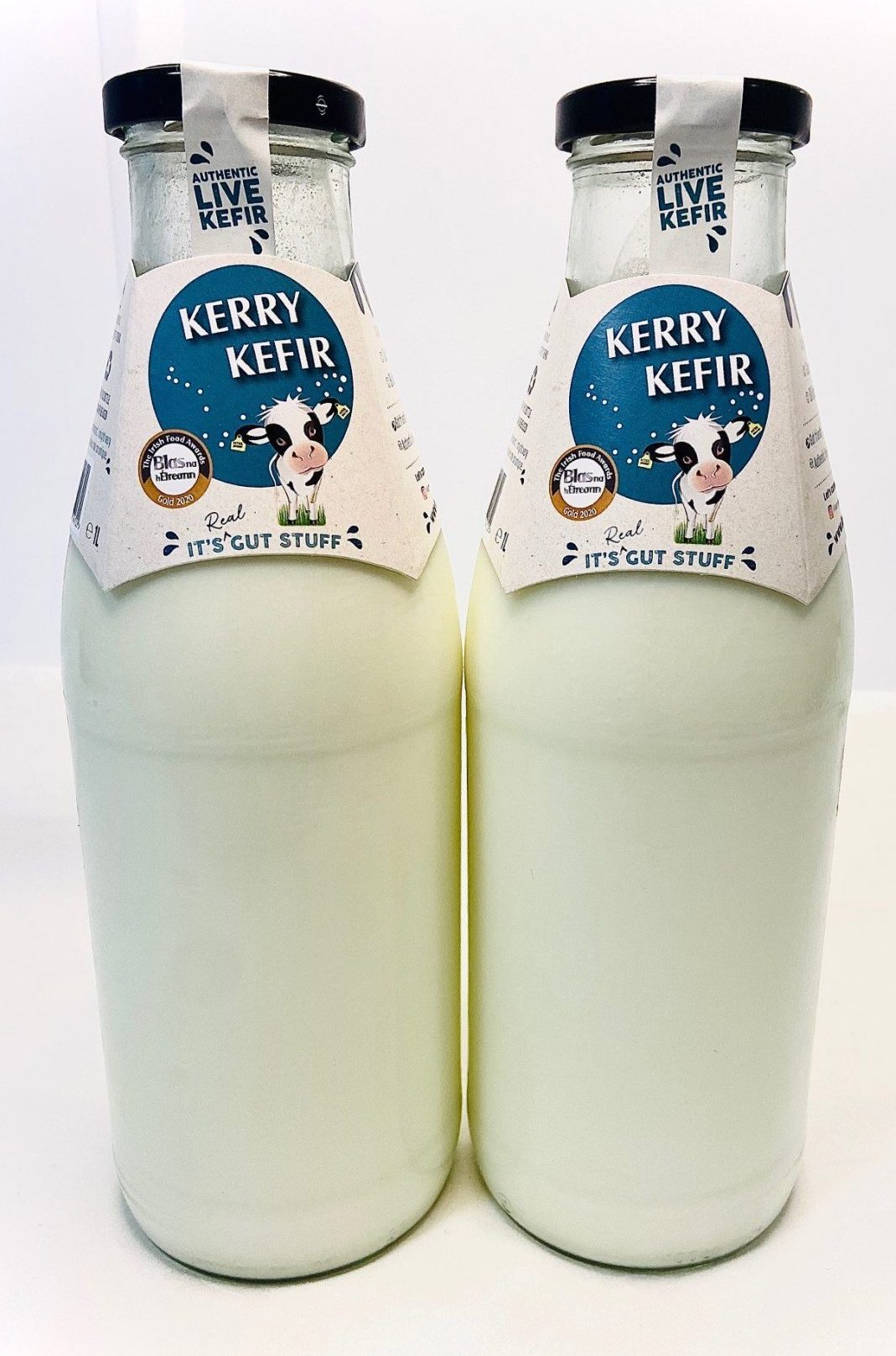
Why This Matters
At Electric Picnic, one of the most powerful takeaways for me was this: food has power. It is one of the simplest and most accessible tools we have to support ourselves. And when we choose wisely, it doesn’t just nourish our bodies – it supports local communities and keeps traditions alive.
I was especially inspired by people like Colman Power and Fiorbhia Farm, who are doing incredible work to raise awareness of the amazing Irish farms working tirelessly to provide real, good food for their local communities. Their efforts are proof that food is not just about health, but also about connection, sustainability, and pride in what we produce here in Ireland.
Whether it’s through scientific research, lived experience, or treasured family traditions, food connects us to health, culture, and each other. Kefir is just one example of how something simple and natural can fit into modern life while carrying forward an ancient tradition.
So while I can’t stand here and tell you Kerry Kefir will “fix” anything, I can say this: real, living, simple food matters. And I feel hopeful that more and more people are beginning to see the role food can play in keeping us well.
Want to learn more? Read our blog on kefir made with grains vs powders and explore the microbial composition of Kerry Kefir.


